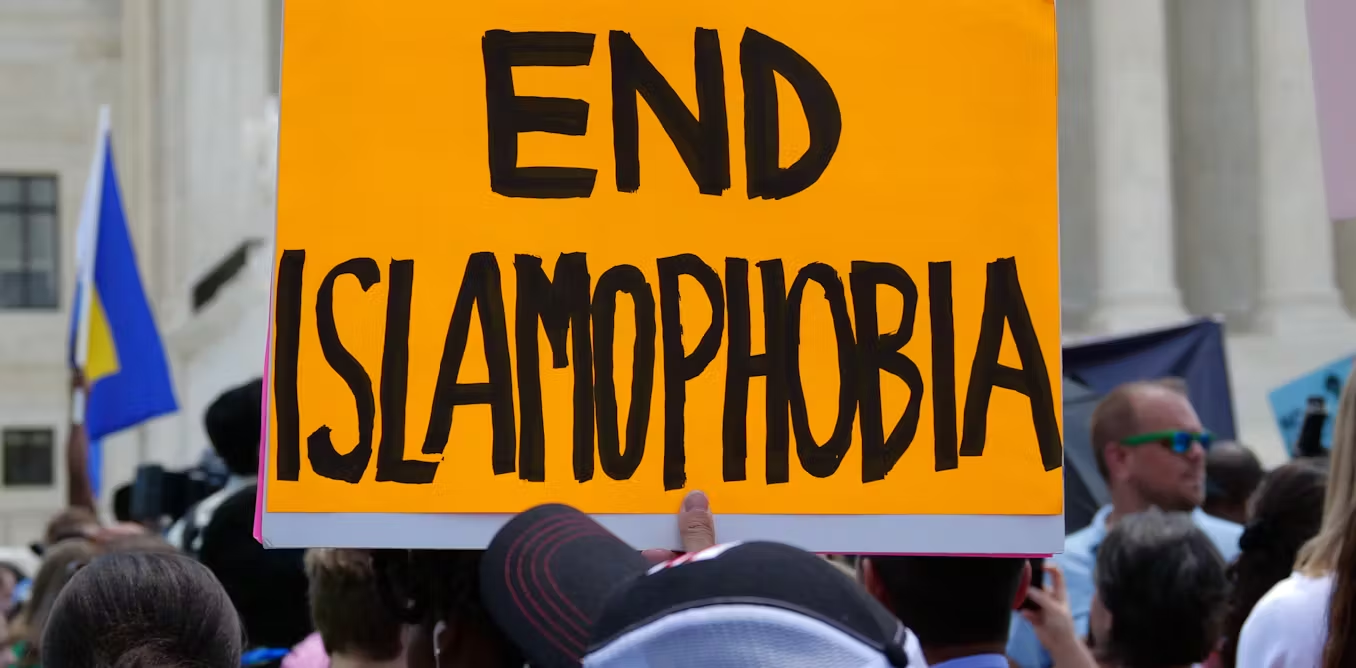Arshad Mahmood Awan
Islamophobic attacks in the UK saw a disturbing rise in 2024, reflecting a broader surge in anti-Muslim sentiment and the influence of far-right rhetoric. This trend challenges the nation’s core values of diversity, tolerance, and social cohesion, exposing the vulnerability of these ideals under growing waves of hate. The situation represents a significant concern for the government, especially after far-right propagandists incited nationwide anti-Muslim and anti-immigrant riots in the aftermath of a tragic event in Southport. These riots were fueled by false narratives and racist claims, severely testing the Starmer government’s ability to address this crisis.
In 2024, Islamophobic rhetoric gained momentum, with certain factions of society, including far-right figures, exploiting these sentiments for political gain. One of the most significant incidents occurred following the horrific murders of three children in Southport. Far-right activists spread false claims about the attacker, wrongly identifying him as a Muslim migrant or asylum seeker, despite the fact that the British-born assailant was a Christian. This misinformation set the stage for widespread anti-Muslim violence and protests across the country.
The rise in Islamophobia can also be linked to ongoing conflicts in the Middle East, particularly the Israel-Palestine conflict. Pro-Israeli groups and individuals exacerbated anti-Muslim rhetoric by conflating anti-genocide protests with support for Hamas, the militant group behind the October 7, 2023, attack on Israel. This attempt to equate protesters with supporters of terrorism fueled further animosity against Muslims, particularly as certain media outlets and political figures continued to spread false narratives despite ample evidence to the contrary.
While the UK government largely responded appropriately to these events, the media and social media platforms have not been as responsible in their coverage. A prime example of this is the role played by Elon Musk, the owner of X (formerly Twitter), who has used his platform to amplify disinformation about Muslims, political leaders like Keir Starmer, and the British government. Musk’s actions have raised concerns about the platform’s role in perpetuating hate speech and fostering an environment that challenges government efforts to uphold laws against hate speech.
The consequences of this growing Islamophobia extend far beyond the immediate victims of hate crimes. Muslims, particularly those who are visibly identifiable, such as women who wear hijabs and people attending mosques, have become frequent targets. Children, too, are growing up in a climate of fear and alienation, with many feeling unwelcome in their own country. This erosion of a sense of safety and belonging undermines the principles of equality and inclusion that the UK claims to stand for.
The ripple effects of Islamophobia are deep and lasting. The rise in hate crimes against Muslims has led to a growing sense of marginalization and alienation within the Muslim community. This, in turn, fosters a sense of separation and disconnection from the broader society. The consequences of such alienation are not merely psychological but also social and economic. As individuals become increasingly isolated, the likelihood of failure to integrate into mainstream society rises, perpetuating the creation of segregated communities and “ghettos.”
Pl watch the video and subscribe to the YouTube channel of republicpolicy.com for quality content:
In addition to the social implications, these growing divides have economic repercussions as well. Marginalized groups often face barriers to employment, education, and social mobility. As a result, the cycle of poverty and exclusion becomes harder to break, leading to long-term consequences for both individuals and society at large.
The responsibility to counter this rise in Islamophobic hate crimes lies not only with the government but with media organizations, social media platforms, and the public at large. The government must continue to enforce laws that protect against hate crimes and ensure that law enforcement agencies are equipped to address such issues. At the same time, the media and social media platforms must be held accountable for the role they play in spreading misinformation and amplifying harmful narratives. Platforms like X must take steps to regulate content that fosters hatred, while media outlets should prioritize fact-based reporting over sensationalism.
Equally important is the role of education in combating Islamophobia. Schools and educational institutions must emphasize the values of diversity, inclusion, and mutual respect. Teaching young people about the rich contributions of Muslim communities to British society can help to counter stereotypes and foster a more inclusive environment. Moreover, programs that promote interfaith dialogue and cooperation can help break down barriers between Muslim and non-Muslim communities, reducing the likelihood of further conflict.
In conclusion, the rise of Islamophobia in the UK in 2024 presents a dire challenge to the nation’s commitment to diversity, tolerance, and social unity. The government’s efforts to curb this rise must be coupled with more responsible media coverage, effective regulation of social media platforms, and a broader societal commitment to inclusivity. Failure to address this issue adequately will not only harm the Muslim community but will also undermine the very principles that make the UK a thriving, multicultural society. It is crucial that steps are taken now to ensure that Islamophobia does not continue to divide the country, perpetuate hate, and erode the social fabric of the nation.
















